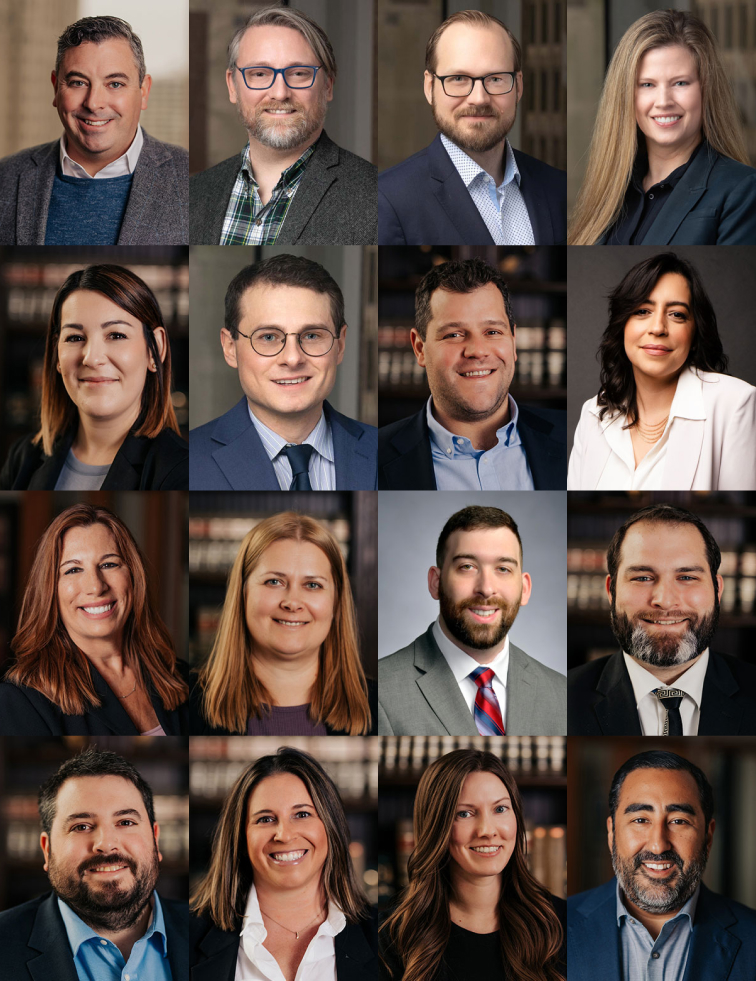We are here to
Help you!
DEBTSTOPPERS
The experienced Illinois bankruptcy attorneys!
Find out if you qualify today!Leading Experts
Chapter 7 and 13
20+
Years of experience
100,000 +
Clients
24/7
Availability & Client Support

The experienced Illinois bankruptcy attorneys!
Find out if you qualify today!Chapter 7 and 13
Years of experience
Clients
Availability & Client Support
Debtstoppers can help you determine which type of bankruptcy is best for your situation. Filing for bankruptcy can be complex but Debstoppers streamlines the legal journey for you. Our experienced bankruptcy attorneys are here to help you every step of the way!
Our attorneys can help evaluate your financial situation and help you determine if Chapter 7 or Chapter 13 is a better fit for your situation.
Chapter 7 involves liquidating non-exempt assets to pay off debts, while Chapter 13 involves creating a repayment plan to pay off debts over time. It’s important to understand which chapter is appropriate for your situation.
To find out if Chapter 7 or Chapter 13 bankruptcy is right for you, contact Debstoppers today for a free consultation.


We Prepare All Filing Documents For You

We Collect Your Tax Returns And Credit Reports For You

We Deal With Your Creditors

We Provide Independent Credit Counseling Right In Our Office

We consistently advocate for your best interests, ensuring thorough representation.
We provide tailored strategies, always considering your specific circumstances.
To us, our clients are paramount. We offer understanding and dependable support throughout.
Clear and honest communication is a cornerstone of our practice. You're always informed.
Your concerns are our concerns. We aim to navigate the legal process smoothly for you.

Most firms demand hundreds of dollars in upfront fees before they file your Chapter 7 bankruptcy case. At Debtstoppers, we spend our money to get you out of debt. We advance your court costs, file your Chapter 7, and get you out of debt for zero upfront.
Chapter 7 bankruptcy is a legal process that allows individuals or businesses to discharge most of their unsecured debts by liquidating their nonexempt assets. Chapter 7 bankruptcy is also known as "liquidation bankruptcy" or "straight bankruptcy".
To qualify for Chapter 7 bankruptcy, you must first pass a means test. The means test compares your income to the median income in your state and determines whether you have enough disposable income to repay your debts through a Chapter 13 repayment plan. If your income is below the state median or you do not have enough disposable income to fund a Chapter 13 plan, you may be eligible for Chapter 7 bankruptcy.
The ultimate goal of Chapter 7 bankruptcy is to obtain a discharge of most unsecured debts, such as credit card debt, medical bills, personal loans, and certain types of taxes. Once the bankruptcy court grants the discharge, you are released from personal liability for those debts, and creditors are prohibited from taking any further collection actions against you.
A person or business can initiate Chapter 7 bankruptcy proceedings by filing a petition with the bankruptcy court in their jurisdiction. Upon filing the petition, an automatic stay goes into effect, which halts most creditor actions, including collection efforts, lawsuits, wage garnishments, and foreclosure proceedings.
Upon filing for Chapter 7 bankruptcy, a trustee is appointed to oversee your case. The trustee's primary responsibility is to review your assets, liquidate any nonexempt property, and distribute the proceeds to creditors. However, many assets are protected from liquidation through exemptions provided under federal or state law.
Exempt assets, such as a certain amount of equity in a primary residence, personal belongings, retirement accounts, and tools of the trade, are protected from liquidation up to certain limits.
Not all debts are dischargeable in Chapter 7 bankruptcy including child support, alimony, most tax debts, student loans (unless a hardship can be proven), debts arising from fraud or willful misconduct, and court-ordered restitution or fines, are generally nondischargeable.
Chapter 7 bankruptcy can provide you with a fresh start by eliminating overwhelming debt burdens and allowing you to rebuild your financial life free from unmanageable debt obligations.
To successfully file Chapter 7, it is essential to consult with a qualified bankruptcy attorney to assess your specific financial situation, explore your options, and determine whether Chapter 7 bankruptcy is the right solution for your circumstances.
The experienced Chapter 7 bankruptcy attorneys at Debtstoppers can guide you through the bankruptcy process, protect your rights, and help you achieve a favorable outcome.